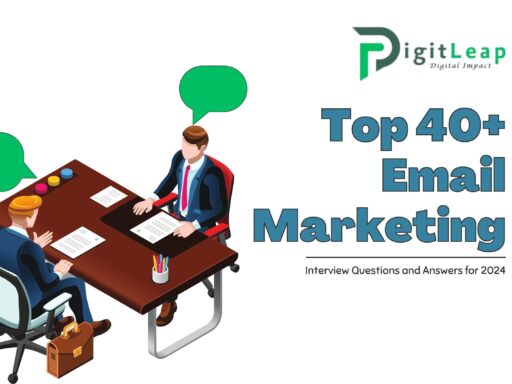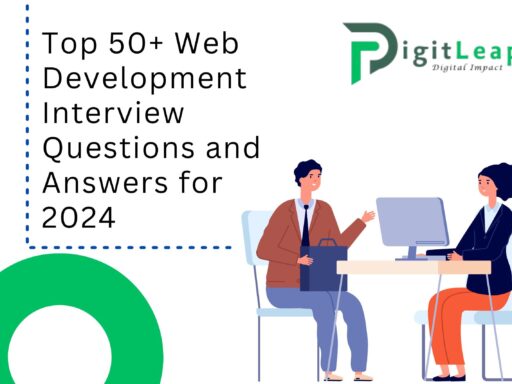ERP vs CRM: What’s Best for Your Business?
In today’s rapidly evolving business environment, organizations are continually seeking tools that streamline operations, enhance customer relationships, and drive overall efficiency. Two of the most critical systems that support these goals are Enterprise Resource Planning (ERP) and Customer Relationship Management (CRM). At DigitLeap, we’ve seen firsthand how the right technology can transform a business. But when it comes to choosing between ERP and CRM, what’s truly best for your business? Let’s dive in.
Understanding ERP and CRM
Enterprise Resource Planning (ERP):
ERP systems integrate a range of business processes—from finance and supply chain management to human resources and manufacturing—into one comprehensive platform. The goal is to create a unified system that provides real-time data, streamlines workflows, and improves efficiency across the entire organization. ERP systems are typically favored by larger organizations with complex, interrelated operations that need robust data management and process automation.
Customer Relationship Management (CRM):
CRM systems focus on managing interactions with customers, prospects, and sales teams. These platforms centralize customer data, facilitate marketing campaigns, track sales activities, and support customer service initiatives. CRM is essential for businesses that rely heavily on customer interactions and need to nurture long-term relationships through personalized communication and data-driven insights.
Key Differences Between ERP and CRM
While ERP and CRM systems may seem similar at a glance, they serve distinct purposes:
- Scope of Functionality:
ERP systems encompass a broad range of internal business processes. They integrate various functions into one platform, providing a holistic view of the organization. CRM systems, on the other hand, are specialized tools designed specifically to manage customer interactions and drive sales performance. - Data Focus:
ERP systems consolidate data from across the organization to facilitate operational efficiency and informed decision-making. In contrast, CRM systems focus on customer data—tracking interactions, sales history, preferences, and behavior—to help businesses build stronger relationships. - Implementation Complexity:
Implementing an ERP system is often a significant, organization-wide undertaking. It typically requires substantial investment, detailed planning, and cross-departmental collaboration. CRM systems are generally easier to implement, with more modular options that can scale as the business grows.
Which is Right for Your Business?
The decision to invest in ERP or CRM depends on your business needs, priorities, and scale. Here are some scenarios to consider:
- Choose ERP if:
- Your organization needs to integrate multiple internal processes across different departments.
- You require real-time visibility into operations, inventory, finances, and human resources.
- You operate in a complex environment where data consistency and process automation are key to efficiency.
- Choose CRM if:
- Your primary goal is to enhance customer engagement, manage leads, and boost sales performance.
- You want to improve marketing campaigns and tailor customer interactions based on detailed data insights.
- Your business is customer-centric, and building long-term relationships is critical to growth.
The Power of Integration: When ERP Meets CRM
Increasingly, businesses are finding that the most powerful solution isn’t choosing one over the other, but rather integrating both ERP and CRM systems. This integration allows organizations to benefit from comprehensive operational management while maintaining a sharp focus on customer relationships. When data from ERP systems is seamlessly combined with CRM insights, companies can achieve a 360-degree view of their business—optimizing supply chain management, forecasting demand, and delivering personalized customer experiences.
At DigitLeap, we help organizations navigate this integration process. Our approach involves aligning business processes, ensuring data consistency across systems, and leveraging cloud-based platforms to enable real-time analytics and reporting. This holistic integration not only enhances operational efficiency but also empowers businesses to make data-driven decisions that drive growth.
Final Thoughts
Deciding between ERP and CRM—or finding the right balance between the two—depends on your specific business objectives. ERP systems offer comprehensive process integration and operational efficiency, while CRM systems focus on building and nurturing customer relationships. For many organizations, the ideal strategy lies in integrating both systems to create a unified, data-driven ecosystem.
At DigitLeap, we believe that the future of business lies in intelligent integration and continuous digital transformation. By leveraging the strengths of both ERP and CRM, your business can unlock new opportunities, streamline operations, and deliver exceptional customer experiences. Reach out to us today to learn how we can help you build a technology strategy that drives success in an increasingly competitive market.




